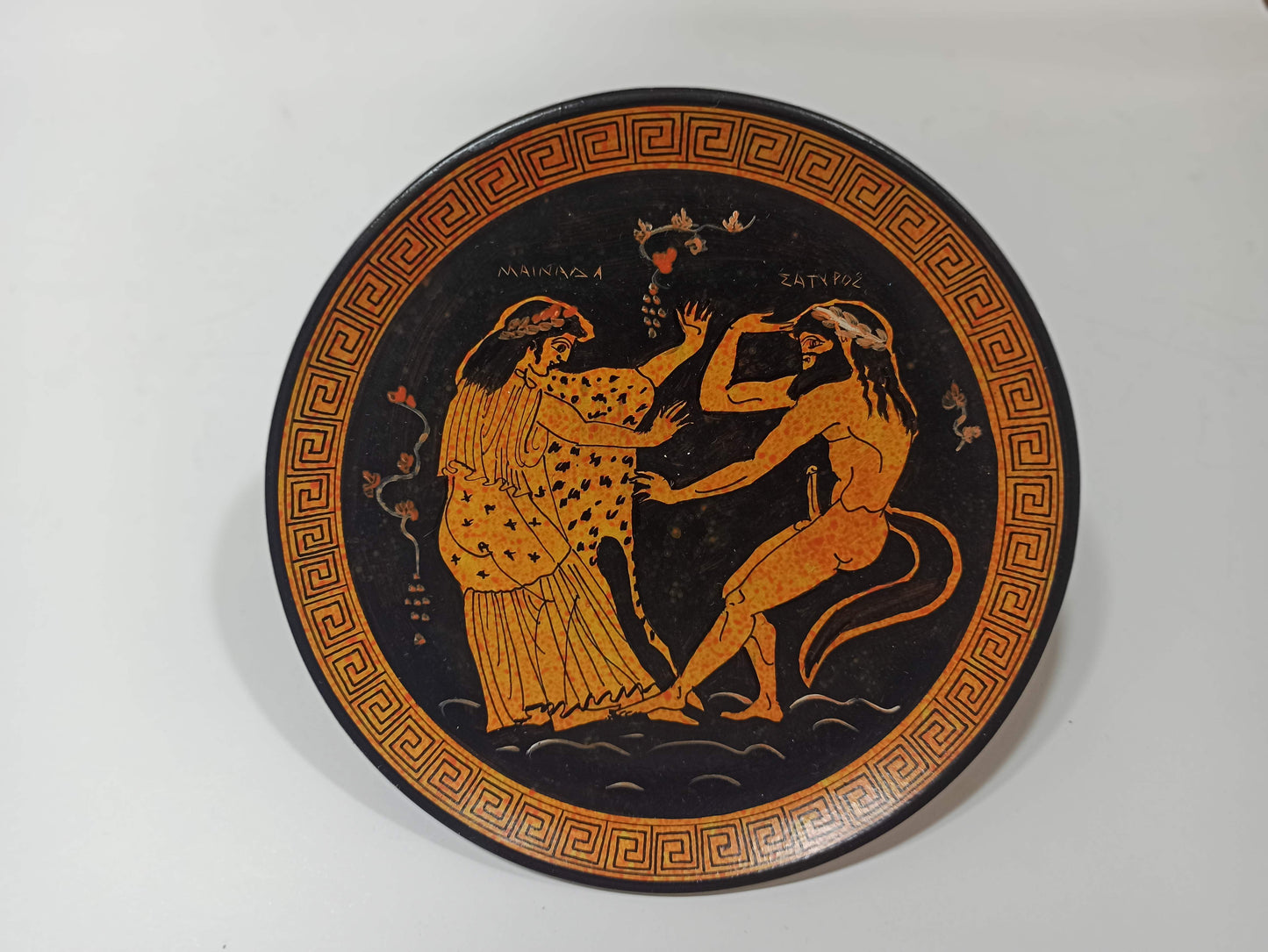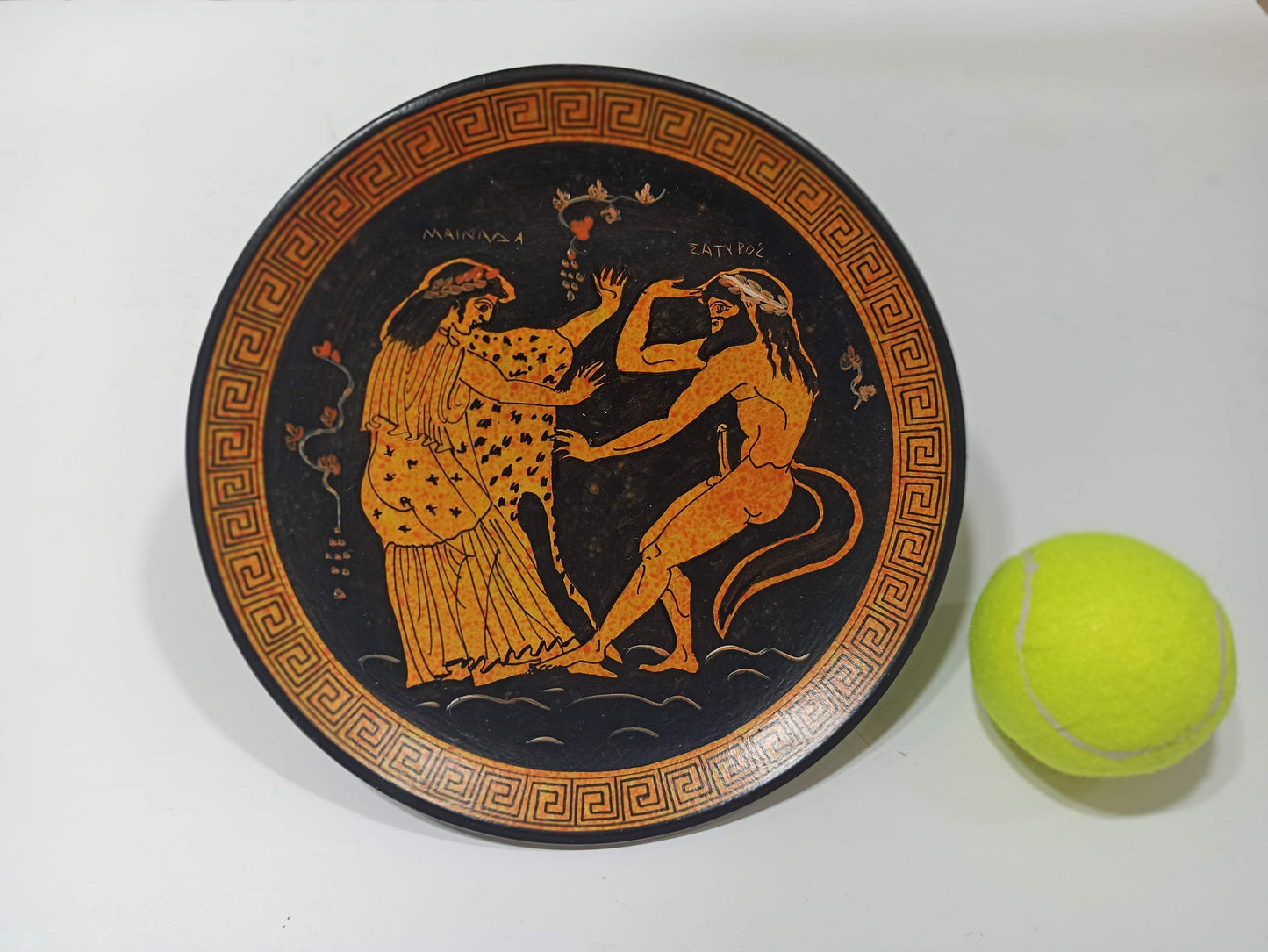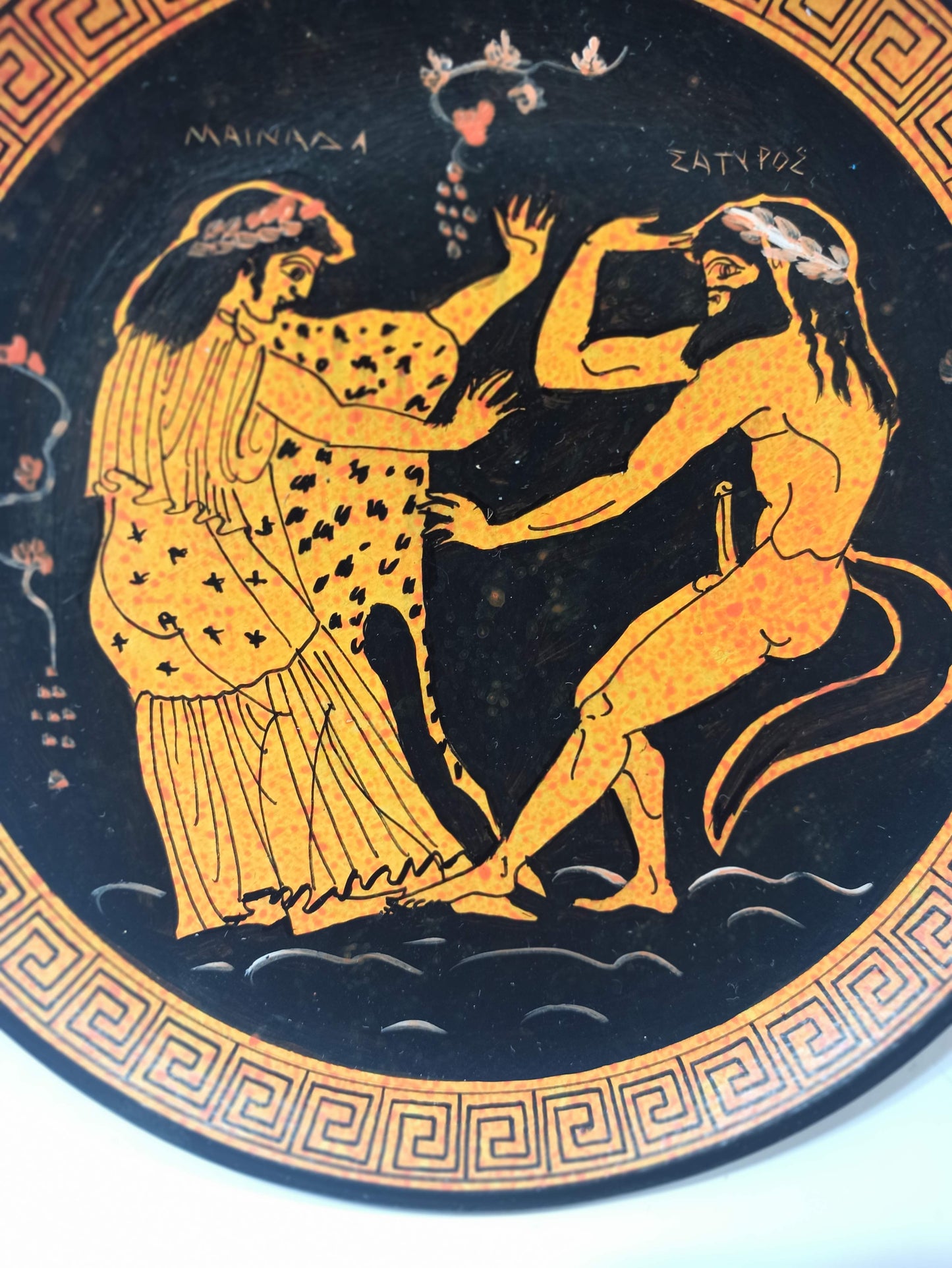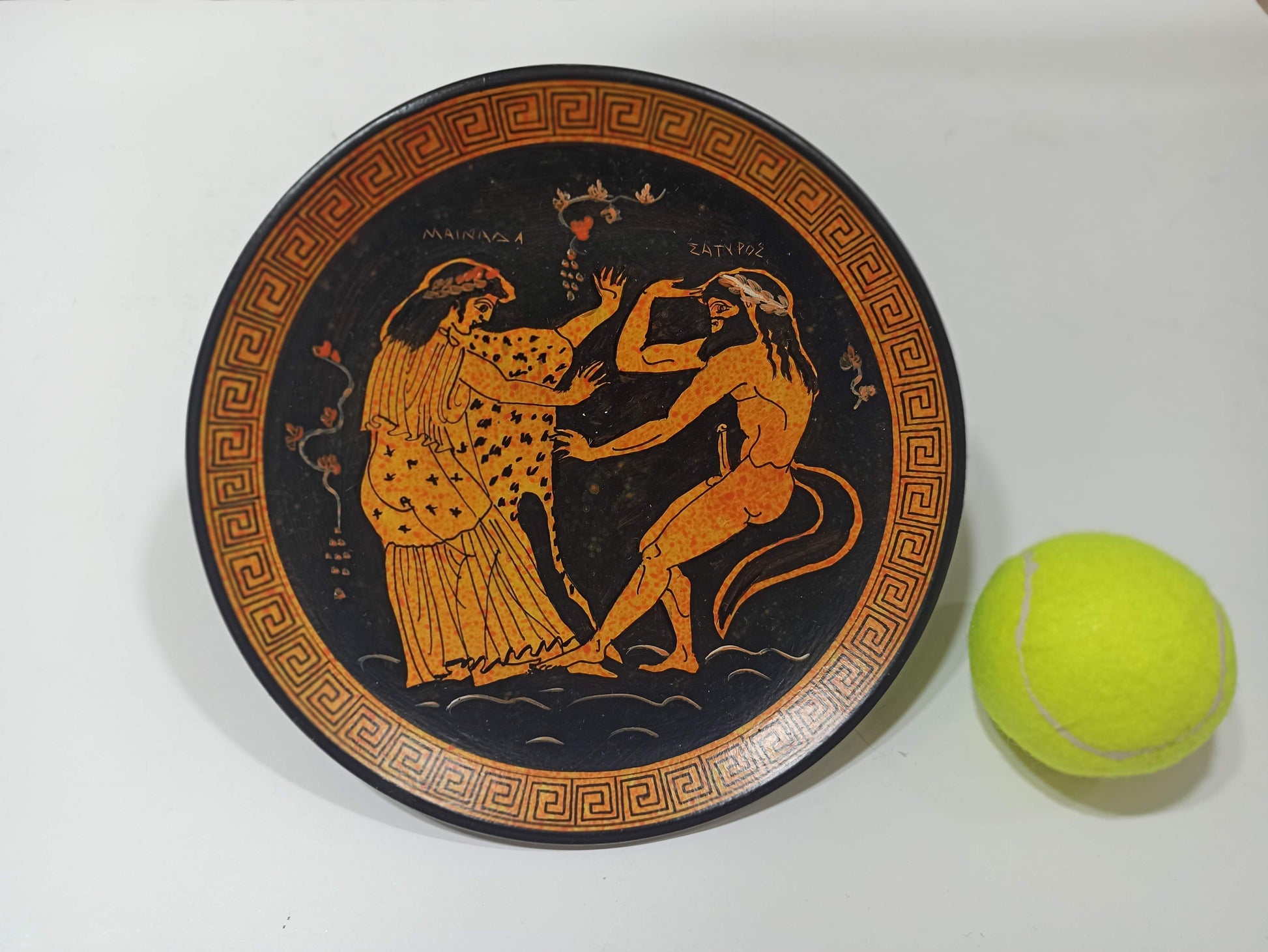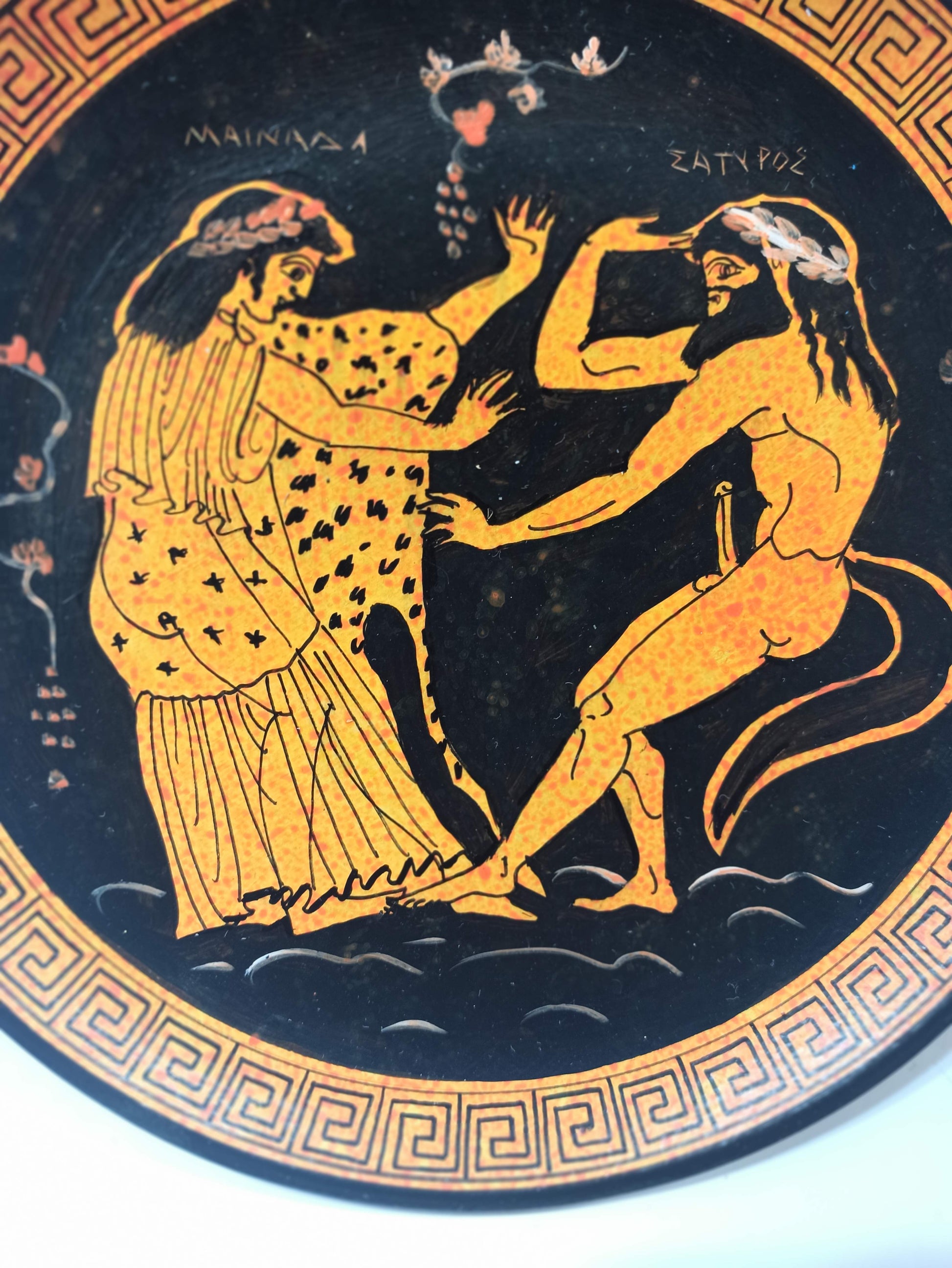Gallery Demeter
Satyr - Male woodland creature, Goat-Human Hybrid - Maenad, female follower of Dionysus and member of the thiasus - Ceramic - Handmade
Satyr - Male woodland creature, Goat-Human Hybrid - Maenad, female follower of Dionysus and member of the thiasus - Ceramic - Handmade
Regular price
€79,90 EUR
Regular price
Sale price
€79,90 EUR
Unit price
per
Tax included.
Shipping calculated at checkout.
Couldn't load pickup availability
Condition: New, Handmade in Greece
Diameter: 20 cm - 7,9 inches
Weight: 350 g
Material: clay, paint, ceramic, terracotta
In Greek mythology, a satyr, also known as a silenus or silenos, is a male nature spirit with ears and a tail resembling those of a horse, as well as a permanent, exaggerated erection. Early artistic representations sometimes include horse-like legs, but, by the sixth century BC, they were more often represented with human legs. Comically hideous, they have mane-like hair, bestial faces, and snub noses and they always are shown naked. Satyrs were characterized by their ribaldry and were known as lovers of wine, music, dancing, and women. They were companions of the god Dionysus and were believed to inhabit remote locales, such as woodlands, mountains, and pastures. They often attempted to seduce or rape nymphs and mortal women alike, usually with little success. They are sometimes shown masturbating or engaging in bestiality.
In Greek mythology, maenads were the female followers of Dionysus and the most significant members of the thiasus, the god's retinue. Their name, which comes from μαίνομαι (to rave), literally translates as 'raving ones'. Maenads were known as Bassarids, Bacchae in Roman mythology after the penchant of the equivalent Roman god, Bacchus, to wear a bassaris or fox skin. Often the maenads were portrayed as inspired by Dionysus into a state of ecstatic frenzy through a combination of dancing and intoxication. During these rites, the maenads would dress in fawn skins and carry a thyrsus, a long stick wrapped in ivy or vine leaves and tipped with a pine cone. They would weave ivy-wreaths around their heads or wear a bull helmet in honor of their god, and often handle or wear snakes.
ΜΠΑ Π20 Νο 2 ΣΑΤΥΡΟΣ ΜΑΙΝΑΔΑ - 15
Diameter: 20 cm - 7,9 inches
Weight: 350 g
Material: clay, paint, ceramic, terracotta
In Greek mythology, a satyr, also known as a silenus or silenos, is a male nature spirit with ears and a tail resembling those of a horse, as well as a permanent, exaggerated erection. Early artistic representations sometimes include horse-like legs, but, by the sixth century BC, they were more often represented with human legs. Comically hideous, they have mane-like hair, bestial faces, and snub noses and they always are shown naked. Satyrs were characterized by their ribaldry and were known as lovers of wine, music, dancing, and women. They were companions of the god Dionysus and were believed to inhabit remote locales, such as woodlands, mountains, and pastures. They often attempted to seduce or rape nymphs and mortal women alike, usually with little success. They are sometimes shown masturbating or engaging in bestiality.
In Greek mythology, maenads were the female followers of Dionysus and the most significant members of the thiasus, the god's retinue. Their name, which comes from μαίνομαι (to rave), literally translates as 'raving ones'. Maenads were known as Bassarids, Bacchae in Roman mythology after the penchant of the equivalent Roman god, Bacchus, to wear a bassaris or fox skin. Often the maenads were portrayed as inspired by Dionysus into a state of ecstatic frenzy through a combination of dancing and intoxication. During these rites, the maenads would dress in fawn skins and carry a thyrsus, a long stick wrapped in ivy or vine leaves and tipped with a pine cone. They would weave ivy-wreaths around their heads or wear a bull helmet in honor of their god, and often handle or wear snakes.
ΜΠΑ Π20 Νο 2 ΣΑΤΥΡΟΣ ΜΑΙΝΑΔΑ - 15
